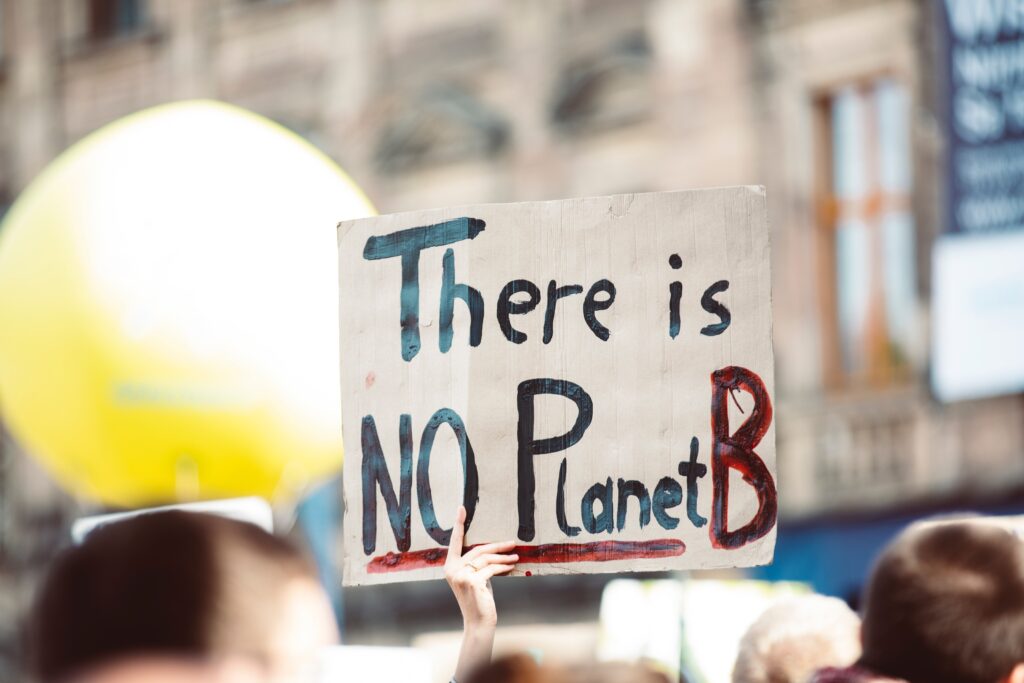Climate Change: 2°C Rise in Global Temperatures Could Lead to A Billion Human Deaths
3 Mins Read
If global temperatures reach 2°C above pre-industrial levels by 2100, it could lead to the one billion deaths, a new study has found. Researchers add that the richest humans would mostly be responsible for the climate-change-related deaths of mostly poorer people.
In 2020, a report found that climate change could displace one billion people by 2050. This is a lot worse.
The study, published in the Energies journal, said that the oil and gas industry, which includes many of the most profitable and powerful businesses in the world, are both directly and indirectly responsible for over 40% of global emissions, affecting billions of people living in the world’s most remote and low-resourced communities.
The researchers reviewed 180 scientific articles, and found that peer-reviewed literature on the human mortality costs of carbon emissions converged on the “1,000-ton rule”, an estimate that one future premature death is caused every time about 1,000 tons of fossil carbon are burned.
“Energy numbers like megawatts mean something to energy engineers like me, but not to most people,” said lead author Joshua Pearce. “Similarly, when climate scientists talk about parts per million of carbon dioxide, that doesn’t mean anything to most people. A few degrees of average temperature rise are not intuitive either. Body count, however, is something we all understand.”
He added: “If you take the scientific consensus of the 1000-ton rule seriously, and run the numbers, anthropogenic global warming equates to a billion premature dead bodies over the next century. Obviously, we have to act. And we have to act fast.”
Food vs energy

Under the 2015 Paris Agreement, global governments pledged to limit average temperatures to 1.5°C above pre-industrial levels and keep them well below the 2°C mark. However, according to a study published in the peer-reviewed Science journal, it’s food and agriculture systems that need more addressing.
At current rates, the world will emit around 1,356 billion tonnes of CO2e by 2100. That means even if we stop all emissions from non-food sectors (energy and industry), food emissions alone will surpass the 1.5°C carbon budget. And to have a 67% chance of staying below the 2°C temperature rise above pre-industrial levels, we can only emit 49 billion tonnes of CO2e from all non-food sectors – that equates to just over a year of current fossil fuel emissions.
The researchers suggest aggressive energy policies to enable immediate and substantive cuts in carbon emissions. It also recommended accelerated government, corporate and citizen action to speed up decarbonisation, in order to minimise the number of projected human deaths due to climate change.
“Such mass death is clearly unacceptable. It’s pretty scary really, especially for our children,” said Pearce. “When climate scientists run their models and then report on them, everybody leans toward being conservative, because no one wants to sound like Doctor Doom. We’ve done that here too and it still doesn’t look good.”
Policy focus
The researchers said energy policy should focus on the following areas to mitigate the threat of climate change:
- Improved energy efficiency and the rational use of energy should be supported by government programmes, including at industrial, agricultural, transportation, residential and household levels.
- Complete replacement of high carbon fuels (coal, oil and natural gas) by zero carbon content fuels (i.e., hydrogen, electricity, etc.) from renewable energy sources like hydropower, wind, geothermal, biomass and solar.
- Development of techniques to devalue carbon-intensive fuel, such as carbon taxes, and technical means for the capture and storage of CO2, like soil carbon sequestration.
“To be clear, predicting the future accurately is hard. The 1,000-ton rule is only an order of magnitude best estimate. The number of caused deaths will likely lie between a tenth of a person and 10 people per 1,000 tons. Regardless, the bottom line that we need to act fast is still crystal clear,” said Pearce.
“Global warming is a matter of life or death for a billion people. Almost everyone agrees that every human life is valuable, independent of age, cultural or racial background, gender or financial resources. Therefore, the energy transition will have to change much, much faster, starting now.”



